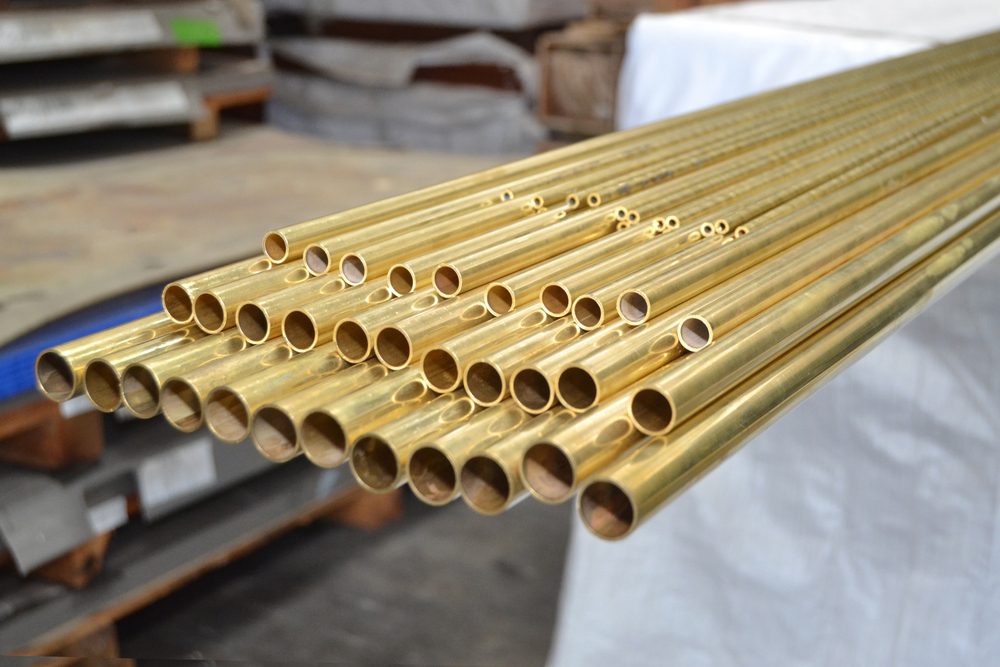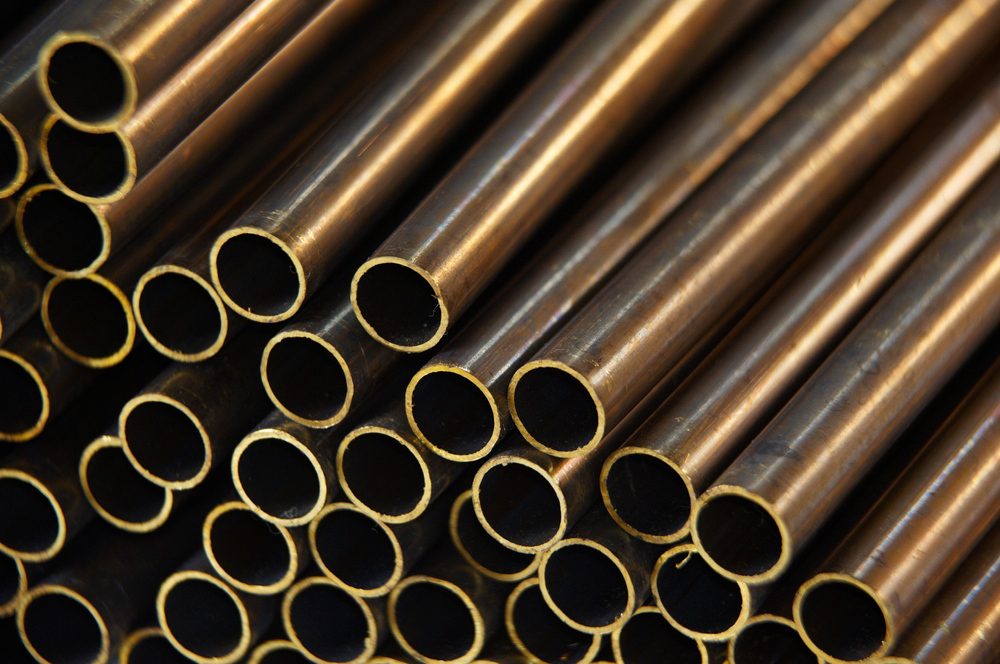
Brass pipes can be an excellent choice in your household for many reasons. They are superior to other choices due to their long-lasting and fire-resistant qualities. However, those are only some benefits of using brass pipes for plumbing systems. We have created an extensive guide that gives an overview of the pros and cons of brass pipes for homes.
Table of Contents
4 Drawbacks of Brass Pipes
Suppose you are a plumber or homeowner wanting to decide between brass, PVC, galvanized steel, or another type of pipe. In that case, you may look at the disadvantages of brass piping. This will allow you to become familiar with issues you may face (if any at all.) This is why it is essential to know what to expect beforehand.
1. Corrosion
Brass pipes are known for rusting easily, especially when oxidizing into the atmosphere. In this case, it may rust over time, seeping in contaminants and other unwanted materials.
Also, when brass is submerged in water, its natural zinc qualities get lost. In return, this causes the metal to become weak, which eventually causes pipe decay.
2. Noises
It is not uncommon for brass pipes to make whining or whistling noises when water is circulating through them. For example, multiple instances can happen, especially if you have brass pipes connected to your bedroom and are trying to sleep. However, you may hear the noises less if your home has good insulation.
3. High Price
Brass pipes can be more expensive than most other plumbing pipes for multiple reasons. The first reason is that brass manufacturers require expertise and special equipment. On the other hand, installing brass pipes may be more challenging than other pipe materials, so you add more to your overall cost than you may like.
Read More: Popular Types of Bathroom Fixtures and How to Choose
4. Maintenance
The last drawback of brass pipes is the maintenance it requires. Consider using a special cleaner to prevent your pipes from being eroded.
On top of this, you may need to regularly test your water to ensure no lead is there, which helps you and your family be safe. However, it costs time and money to upkeep your gorgeous yellowish-golden pipes.

5 Benefits of Brass Pipes
There are a variety of benefits of using brass pipes for residential applications. For example, brass piping might be an option if you want something that lasts a long time.
Although costly upfront, the longevity of the cost may outweigh anything else. Still, let us consider what benefits brass pipes may provide for your household.
1. Long Life Cycle
Firstly, you will notice that brass pipes have a long life cycle, which is anywhere between 40 to 70 years, given you took care of it throughout the time you were in your home.
Another thing to consider is that although brass pipes corrode over time, they are durable and metal-resistant to corrosion, especially if taken care of properly. Lastly, brass pipes are less likely to develop leaks over time, making them an excellent choice for your home’s needs.
2. Easy to Install
Brass is a soft metal that is very easy to install inside your home. Unlike other heavy-duty steel products, brass is extremely easy to cut and shape into what you need to be done. Using solder, you can easily combine brass pipes, making the installation a quick breeze.
3. Superior Seal
An advantage of using brass pipes for plumbing applications is superior protection against leaks. Professionals choose to use brass pipes for a variety of projects because it’s easy to create a strong seal. Not many other pipes can say the same.
4. Fire Resistant
Suppose your house has a fire, and almost everything goes to flames. Although it is an incident nobody wants to happen, rest assured that brass pipes are slow to catch on fire.
For this reason, they are a superior choice to others because of their (mostly) fire-resistant qualities. Also, brass pipes will not contribute to a fire spreading if a fire happens to come toward them. Not only this but if you catch it fast enough, the pipes will survive.
5. Good Value
If you are someone who loves saving money in the long run, brass pipes could be an answer to your problem. This is because they bring tremendous value. Not only this but if you repipe your home, your house value will go up.
Read More: What is a Multiwire Branch Circuit? Explanation and Benefits
What Are Brass Fittings Used For?
Brass fittings carry multiple plumbing substances, like chemicals, water, slurries, flammable gasses, and more. Brass fittings can control, adapt, or connect liquid or gas to a pipe.
Different Types of Brass Fittings
There are many different types of brass fittings. They are as follows:
- Pipe adaptors: Used to change connections at the end of a pipe (male or female)
- Pipe plugs: Used for closing pipes
- Pipe nipples: Used to connect two fittings
- Pipe couplings: Connects pipes of the same size
- Pipe wyes: Comes in the shape of a “Y” to form a 45-degree angle
- Pipe tees: Comes in the shape of a “T” to connect more than one branch (only when required of said water supply)
- Pipe elbows: Changes the flow of direction between pipes
- Pipe unions: Used similarly to couplings

Sewer and Water Line Repair Services
If you ever need help replacing old and damaged pipes in your home our team of skilled plumbers in Clifton, NJ are available to resolve your plumbing issues. As much as we try to avoid them, plumbing accidents can happen at any time of the day.
If you notice a water leak behind your walls or beneath your sink, give our professionals a call at (732) 638-4317 to book an appointment. Our team of expert technicians offer a variety of plumbing services such as water line repair, sump pump replacement, whole-house repiping, water heater installation, and trenchless sewer line repair. Our professionals offer upfront pricing to ensure trust and satisfaction.


